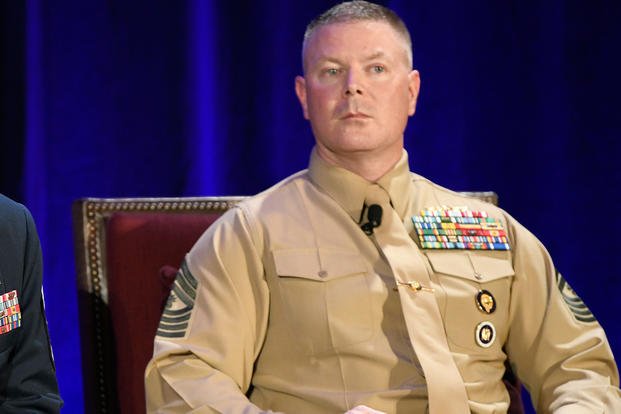Senior U.S. military enlisted officials said Monday that the Pentagon's cyber force -- made up mostly of sergeants and petty officers -- is preparing to defend the upcoming 2020 presidential elections against cyberattacks from foreign governments.
"Operationally, we learned an awful lot from the 2018 midterm elections," Marine Corps Master Gunnery Sgt. Scott Stalker, senior enlisted leader for U.S. Cyber Command, told defense reporters Monday.
"I was just out at Air Force Cyber [Command], the service component that was really focused on this in 2018. They did an absolutely phenomenal job. Everyone that was briefing me was E-6, E-5. ... Those are the people on a daily basis that are on the keyboard, that are doing the operations," he said. "So, it should be no surprise that as we look at 2020 or follow-on elections your [non-commissioned officers], your enlisted members are going to be really, really in deep in this mission set."
The U.S. intelligence community concluded that the Russian government interfered in the 2016 U.S. presidential election, resulting in the Justice Department indicting 12 Russian intelligence officers.
Related: Raytheon System Would Warn Military Aviation Units of Cyber-Hijacking Attempts
Since then, Congress and the Pentagon have ramped up U.S. cyber operations to prevent future election interference.
"When it comes to elections, Russia is not the only area we are looking at," Stalker said, describing how China has carried out a robust information operations campaign in Hong Kong to assert more control over its legal and political systems.
"They have a lot of experience in disinformation, making sure information doesn't get out," he said.
NCOs working at the National Security Agency "are providing that insight to understanding what the adversary is doing so that we can see, characterize, understand and then give that intelligence to Cyber Command, so that we can harden our targets, we can work with state and local governments because ... obviously elections are done at the state and local level," Stalker added.
U.S. Cyber Command is only about nine years old, so "no one has 20 or 30 years of experience in this domain," he explained.
The Marine Corps has a younger crop of cyber personnel, but the Air Force has a more senior-ranked system so that "allows us to have someone who has been doing this a lot longer," he said.
"I can assure you those individuals that are on the keyboard, doing the mission, more often than not are young NCOs," Stalker said.
-- Matthew Cox can be reached at matthew.cox@military.com.
Read more: Navy Authorizes Two-Piece Swimsuits, Gold Star Lapel Button














